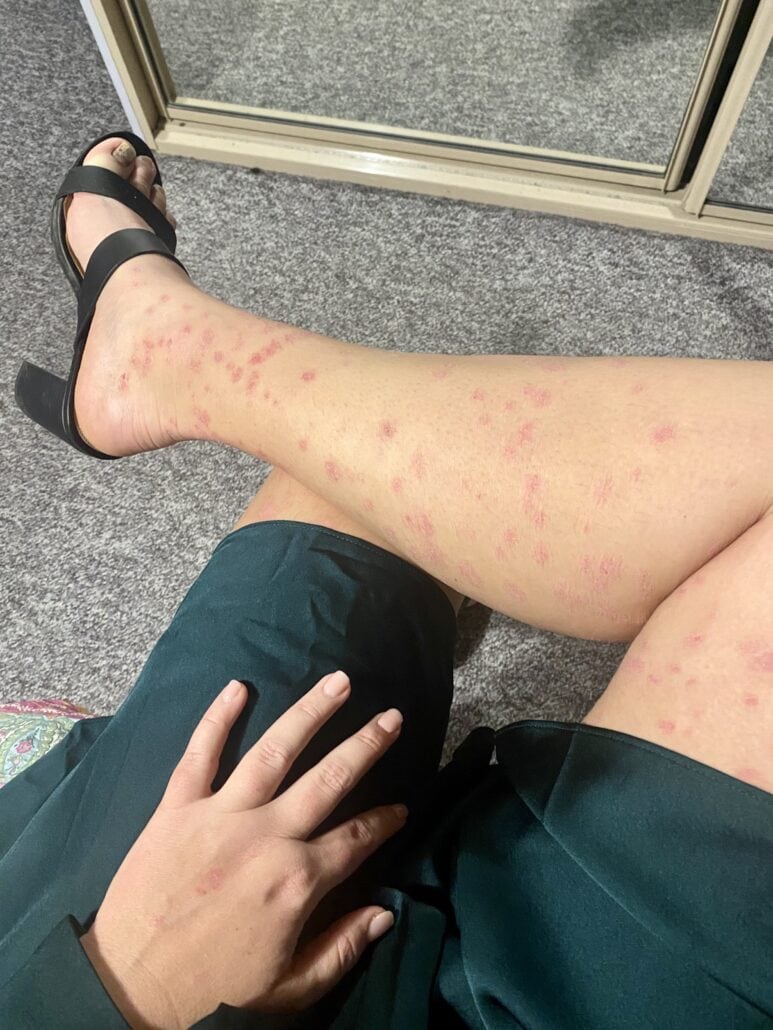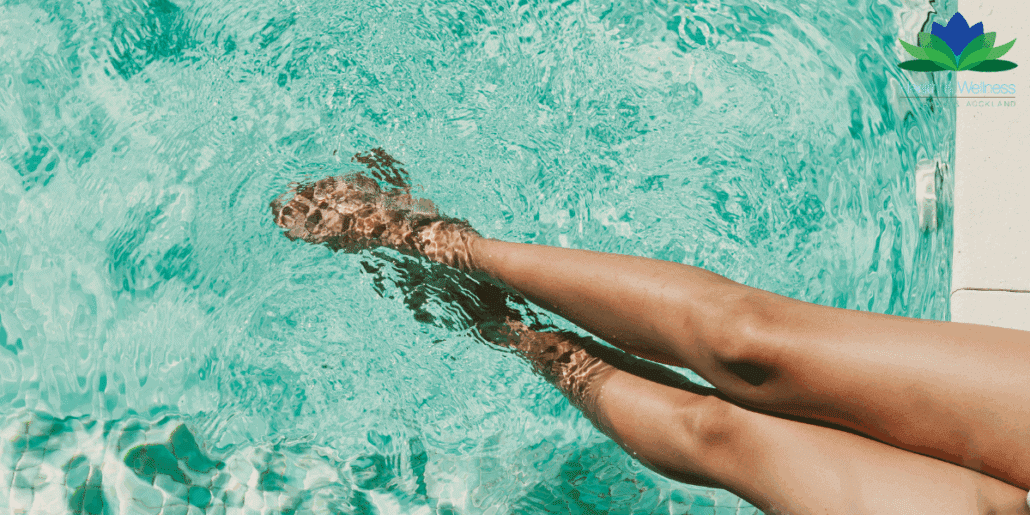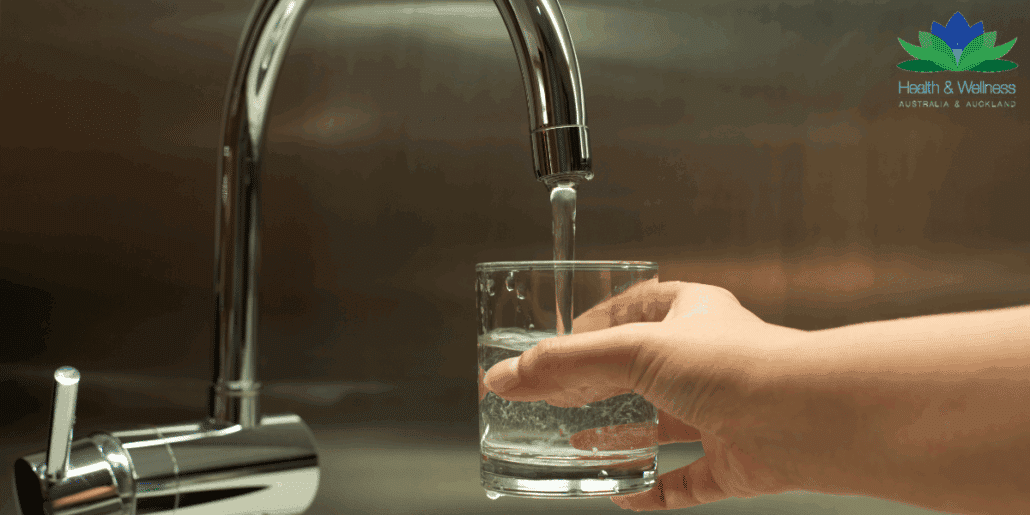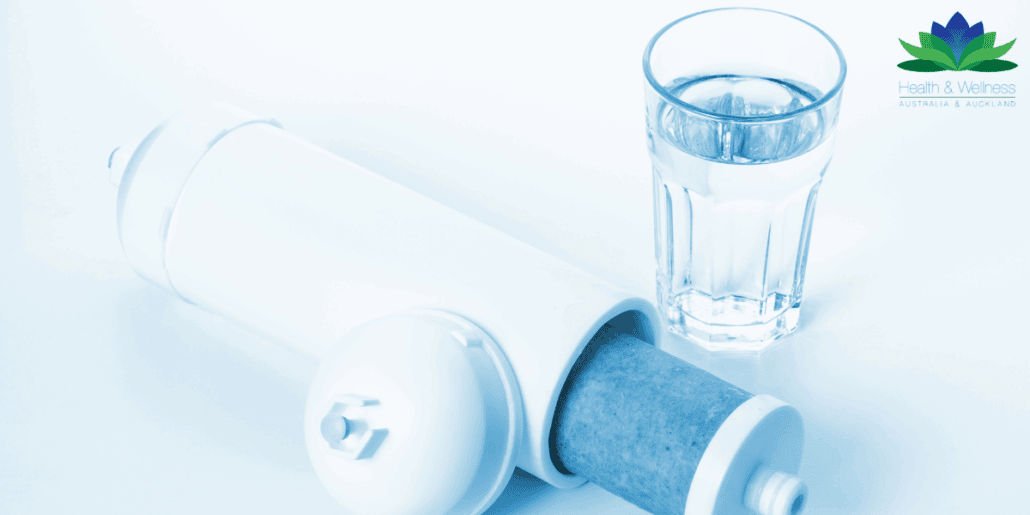Does Chlorine Exposure cause Allergies?
As someone with a family history of psoriasis and mild guttate psoriasis, I have always been mindful which skin care products I use and avoid chemicals as much as I can. But a recent experience I had led me to ask the question, does chlorine exposure cause allergies?
The extra sensitivity and susceptibility to allergies, sensitivities and intolerances that comes with psoriasis is what originally brought my father, and now me, to become the owner of Health & Wellness Australia & Auckland.
In the winter of 2022, after two bouts of COVID and two years of running the business through the pandemic, I went to a bathhouse for some much needed R&R with a couple of friends.
Unbeknownst to us, they had just topped up their hot tub with a chlorine-based disinfectant and not brought it up to heat yet. As we jumped and the water warmed up, our eyes began to sting and we noticed the water steam had a strong smell. We swiftly jumped out, washed off and were thankful that the stinging stopped and enjoyed the rest of our time at the bathhouse.

The next morning I woke up with a prickly, stinging rash on my chest. Having sensitive skin, this wasn’t too surprising for me and something that happened occasionally. So, I assumed it would just settle down in a couple of days.
Sadly, that was not the case this time. The rash continued to get angrier and itchier, and ended up triggering in the worst flare up of guttate psoriasis in my life! The flare up persisted for about four months.
Thankfully it cleared up once it was calm enough for me to able to swim at the beach again, as I’ve always found the salt water and sunlight to be beneficial for my skin.
Those four months were challenging to say the least, but now I am grateful for the strategies I learned during my recovery, to lead an even healthier lifestyle now. This experience also peaked my interest in chlorine sensitivity, and I researched ways to minimise my exposure to take care of my skin.
Chlorine Sensitivity Symptoms

I believe my flare up was a result of an underlying autoimmune condition and a compromised immune system due to COVID and the stress of the pandemic, then the exposure to a high level of chlorine tipped me over the edge.
Although, while chlorine is deemed as a ‘hypo-allergenic’ chemical, chlorine sensitivity is more common that most of us realise. Common symptoms of chlorine sensitivity include;
- Skin redness, itching, hives and “irritant dermatitis”
- Aggravation of existing dermatitis or eczema patches
- Coughing, wheezing and feeling tight in the chest
- Sneezing, runny nose and sinus congestion
- Burning, red, watery and itchy eyes
We see lots of clients at our clinics who are sensitive to chlorine, who benefit from Positive Association Technique (PAT), to help manage their reaction.
PAT is a natural allergy treatment performed by our qualified Naturopaths. We utilise a form of muscle testing (kinesiology) to assess your reactions to various foods, airborne substances and chemicals (like chlorine). We then use a chiropractic tool to gently stimulate acupressure points down your back to help reduce your reaction to the substance, and relieve your symptoms.
To learn if PAT is right for you, get a copy of our Free PAT Information E-Pack, or call our head office on 1300 853 023 (Aus) / 09 479 5997 (NZ).
Does Chlorine Exposure cause Allergies?

Now, you may only think of chlorine when going to the public swimming pool. But unless you filter your water, you are drinking and bathing in chlorine every day.
Chlorine is added to our drinking water to kill microorganisms that could call illness. The Australian Drinking Water Guideline (ADWG) limit is 5 milligrams per litre.
Constant exposure to small amounts of chlorine is not only problematic to those who are sensitive to it. Mounting research also suggests that chlorine exposure could actually be a major contributor to rising rates of allergies.
Firstly, chlorine’s anti-microbial effects may reduce the diversity of our gut microbiome. A 2024 mice study found a significant reduction in microbiome diversity after only 3 weeks in those drinking chlorinated water.
Our immune system is intricately interwoven with our gut microbiome. A lack of diversity in our microbiome is thought to increase susceptibility to developing allergies, sensitivities and intolerances. You can learn more about this connection in our blog/podcast with Canberra Naturopath & PAT Practitioner Fiona – “Is Gut Health the Key to a Calmer Immune System?“
Also, when we bathe or swim in chlorinated water, we absorb the chlorine through our skin and breathe in chlorinated steam.
A study from 2006 explored the relationship between childhood asthma, atopy and swimming pool attendance in 341 school children aged 10-13. Data showed that those with an atopic predisposition (high IgE levels) who swam in chlorinated pools regularly before aged 6-7 were eve more likely to develop childhood asthma.
A UK study also found that babies living in areas with higher concentrations of chlorine in their water supply bathing had a greater risk of developing atopic dermatitis (eczema) by 3 months, even if they didn’t have the FLG skin barrier mutation.
Another 2014 study further investigated does chlorine exposure cause allergies. They found that kids who swam in chlorinated water before aged 3 were specifically more likely to develop a dust mite allergy. A reaction to dust mites commonly contributes to both respiratory and skin symptoms.
The Best Chlorine Filters

After reading all this damning research, I was determined to minimise my exposure to chlorine as much as possible!
I believe filtering our water is essential for those of us who are more sensitive, to help lessen the load on our bodies. And in case that’s not enough motivation, check out this article by SMH “‘Forever’ chemicals across Sydney’s drinking water“.
Here are a couple of my favourite filters;
A Zazen water filter is a worthy investment. Not only does it filter tap water, but also makes it more alkaline and balanced with essential minerals. You can sample the water from our Zazen water filter in our Sydney clinic!
The Well Verti Shower Filters are also a game changer. A Brisbane based mum developed the technology after her own son’s struggle with eczema. I loved that it was an easy DYI install into my existing plumbing, and took away the fear of a flare up from showering.
Further Support for Chlorine Sensitivity
With a combination of filtering my water and keeping on top of my triggers using Positive Association Technique (PAT), my skin is better than ever!
If you are struggling with your skin and need further support, please get in touch with us to see how we can help;
- Send us your question https://naturalallergytreatment.com.au/contact-hwa/
- Call our friendly staff on 1300 853 023 (Aus) / 09 479 5997 (NZ)
- Follow us on Instagram @natural.allergy.treatment for more of our latest blogs and podcast episodes

Written by Jessica Keir
Owner of Health & Wellness Australia/Auckland
Bachelor of Science (Psychology)